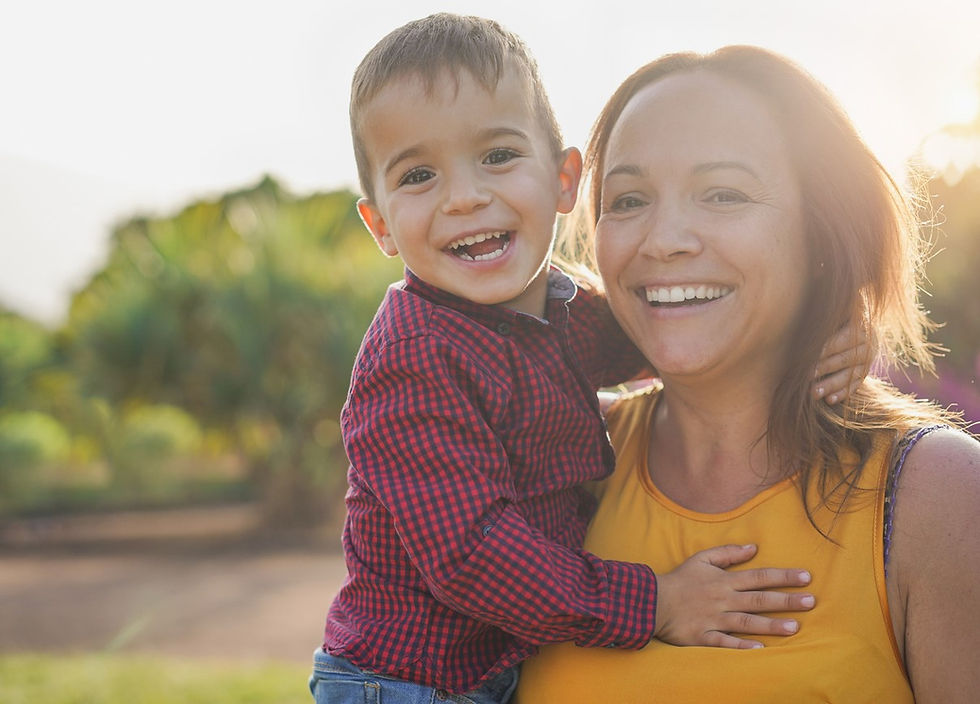Ask Nicole: Self-care is Essential
- Nicole Young
- Apr 30, 2021
- 4 min read
Updated: Sep 21, 2021
I’ve been a mother for 21 years, which is hard to believe. Although my kids are still at the center of my heart and mind, my daily routine no longer revolves around them. They don’t need help with eating, getting dressed, brushing their teeth, or going to bed. I don’t check their homework or drive them places anymore. It’s both sad and liberating. And it makes me realize that for many years, taking care of my kids often took priority over taking care of me – which contradicts everything I’ve ever written about positive parenting! So as Mother’s Day approaches, I’m reminding myself and all female caregivers that self-care is essential. No excuses.
This monthly article provides tips for families raising children, based on the world-renowned Triple P – Positive Parenting Program, available to families in Santa Cruz County. If you have a question or idea for a future column, please email triplep@first5scc.org.
Dear Nicole,
This past year has been rough. I stopped working to care for our 3-year-old and 8-year-old. My husband is working extra hours, so I’m doing all the parenting, cooking, cleaning, shopping, childcare, and tutoring on my own. I enjoy being with my kids, but it’s exhausting and stressful to be “on” all the time. I’m often in a bad mood, which puts everyone on edge. What can I do?
- Lauren
Dear Lauren,
You’re not alone! Parenting is hard when you’re tired and stressed. That’s why taking care of yourself is one of the five principles of positive parenting in Triple P. Self-care reduces stress and sets a good example for children, who are also learning healthy ways to cope with stress. Here are some tips to try:
Recognize signs of stress. Stress is a common, everyday part of life. Our bodies naturally respond to stressful events by increasing our heart rate, blood pressure, and release of stress hormones, like cortisol. These physiological responses prepare us to fight, flee or freeze when we feel physically or emotionally threatened, and our bodies regulate or return to “normal” once our brains tell us the threat is over. But if our bodies are constantly on high alert because of strong, frequent, or long-lasting stress, then we can experience more serious physical and mental health problems later on – especially if we don’t have supportive, nurturing relationships to help us through challenging situations. This is true for children and adults. So it’s critically important to notice early signs of stress, like tense muscles, headaches, extreme mood swings, difficulty sleeping or eating, constant tiredness, problems concentrating, upset stomach, or frequent illnesses. This is your body telling you it needs a break.
Practice relaxation techniques. When you feel stressed, take a few slow, deep breaths. Inhale slowly through your nose, filling your belly with air like a balloon. Pause and hold your breath for a couple seconds. Then slowly let all the air out and do it again. Or tighten the muscles in one area of your body, starting at the top of your head (e.g., eyebrows, eyes). Hold the tension for 10 seconds, then relax. Keep repeating this, moving down your body, all the way to your toes. Notice how it feels to tense and relax your muscles. These relaxation techniques (and others) can often be done even when you’re with your kids.
Use positive coping statements. Our thoughts affect our emotions, which affect our behaviors. In stressful situations, it’s common to automatically think unhelpful thoughts, such as, “I can’t deal with this,” or “Things will never change.” While these thoughts might feel true, they usually heighten our emotions, making it more difficult to deal with the stressful situation. Try replacing unhelpful thoughts with positive coping statements, such as: I can do this. I’m doing the best I can. Take one thing at a time. Breathe. I am enough.
Take time to care for yourself. Make this a priority, even if it’s only for a few minutes at a time. Do something that makes you laugh, brings you comfort, or relieves tension, and do a little more of it each day. Make it part of your daily routine, just like eating, sleeping, and breathing (make sure you do those things, too!).
Final Thoughts: Keep trying self-care techniques until you find something that works. If needed, reach out to friends, family, or professionals who can provide additional support. Self-care isn’t selfish, a sign of weakness, or a waste of time. It’s essential to your health and well-being as a parent, which is vital for your children to thrive.
Nicole Young is the mother of two children, ages 17 and 21, who also manages Santa Cruz County's Triple P - Positive Parenting Program, the world's leading positive parenting program. Scientifically proven, Triple P is made available locally by First 5 Santa Cruz County, the Santa Cruz County Health Services Agency (Mental Health Services Act) and the Santa Cruz County Human Services Department. To find a Triple P parenting class or practitioner, visit http://triplep.first5scc.org, http://www.facebook.com/triplepscc or contact First 5 Santa Cruz County at 465-2217 or triplep@first5scc.org.





Comments